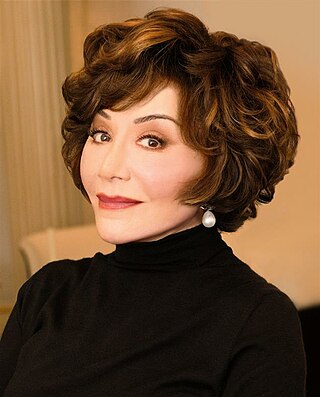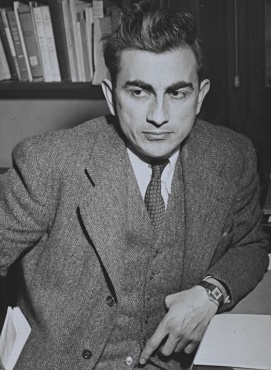
Arvin is a city in Kern County, California. Arvin is located 15 miles (24 km) southeast of Bakersfield, at an elevation of 449 feet (137 m). As of the 2010 census, the population was 19,304, up from 12,956 at the 2000 census.

Zinfandel is a variety of black-skinned wine grape. The variety is grown in over 10 percent of California vineyards. DNA analysis has revealed that it is genetically equivalent to the Croatian grapes Crljenak Kaštelanski and Tribidrag, as well as to the Primitivo variety traditionally grown in Apulia, Italy, where it was introduced in the 18th century, and Kratošija in Montenegro. The grape found its way to the United States in the mid-19th century, where it became known by variations of a name applied to a different grape, likely "Zierfandler" from Austria.

The San Joaquin Valley is the southern half of California's Central Valley. Famed as a major breadbasket, the San Joaquin Valley is an important source of food, producing a significant part of California's agricultural output.

The J.M. Smucker Company, also known as Smuckers, is an American manufacturer of food and beverage products. Headquartered in Orrville, Ohio, the company was founded in 1897 as a maker of apple butter. J.M. Smucker currently has three major business units: consumer foods, pet foods, and coffee. Its flagship brand, Smucker's, produces fruit preserves, peanut butter, syrups, frozen crustless sandwiches, and ice cream toppings.

Grenache or Garnacha is one of the most widely planted red wine grape varieties in the world. It ripens late, so it needs hot, dry conditions such as those found in Spain, where the grape is believed to have originated. It is also grown in the Italian island of Sardinia, the south of France, Australia, and California's Monterey AVA, Paso Robles, Santa Barbara County and San Joaquin Valley.
Harry and David, LLC is an American-based premium food and gift producer and retailer. The company sells its products through direct mail, online, corporate gifting, and in their flagship location in Medford, Oregon, and operates the brands Harry & David, Wolferman's, and Vital Choice.
Calvin Crest or Calvin Crest Conferences is a private Christian campsite near Oakhurst, California, US. Calvin Crest was established by the San Joaquin Presbytery of California in 1954.
Beatrice Foods Company was a major American food conglomerate founded in 1894. One of the best-known food processing companies in the U.S., Beatrice owned many well-known brands such as Tropicana, Krispy Kreme, Jolly Rancher, Orville Redenbacher's, Swiss Miss, Peter Pan, Avis, Milk Duds, Samsonite, Playtex, La Choy and Dannon.

The economy of the State of California is the largest in the United States, with a $3.89 trillion gross state product (GSP) as of 2023. It is the largest sub-national economy in the world. If California were a sovereign nation (2024), it would rank in terms of nominal GDP as the world's fifth largest economy, ahead of both India and the United Kingdom. Additionally, California's Silicon Valley is home to some of the world's most valuable technology companies, including Apple, Alphabet, and Nvidia. In total, 11 of the Fortune 100 companies and 53 of the Fortune 500 companies are headquartered in California.

Gristedes is a New York City–based chain of supermarkets. It serves a mostly urban customer base.
Alphonse A. Burnand Jr. was an American sailor who competed in the 1932 Summer Olympics.

California wine production has a rich viticulture history since 1680 when Spanish Jesuit missionaries planted Vitis vinifera vines native to the Mediterranean region in their established missions to produce wine for religious services. In the 1770s, Spanish missionaries continued the practice under the direction of the Father Junípero Serra who planted California's first vineyard at Mission San Juan Capistrano.

Lynda Rae Resnick is an American billionaire businesswoman. Resnick is married to Stewart Resnick, who is her business partner, and through their holding company, The Wonderful Company, they own the POM Wonderful and Fiji Water brands, Wonderful Pistachios and Almonds, Wonderful Halos, Wonderful Seedless Lemons, JUSTIN Wines, Landmark Wines, JNSQ Wines, and the Teleflora floral wire service company.

Ernesto Galarza was a Mexican-American labor organizer, activist, professor, poet, writer, storyteller, and a key figure in the history of immigrant farmworker organization in California. He had a dream of giving better living conditions to working-class Latinos.

The Mountain View Oil Field is a large, mature, but still-productive oil field in Kern County, California, in the United States, in the extreme southern part of the San Joaquin Valley southeast of Bakersfield. It underlies the town of Arvin, as well as some smaller agricultural communities. The field is spread out across a large area, covering just under 8 square miles (21 km2), with wells and storage facilities widely dispersed throughout the area, scattered among working agricultural fields of broccoli and carrots as well as citrus orchards. Discovered in 1933, it has produced over 90 million barrels (14,000,000 m3) of oil in its lifetime, and although declining in production is one of the few inland California fields in which new oil is still being discovered.
The Wonderful Company LLC, formerly known as Roll Global, is a private corporation based in Los Angeles, California. With revenues of over $4 billion, it functions as a holding company for Stewart and Lynda Resnick and as such is a vehicle for their personal investments in a number of businesses. The company currently counts the following brands as business divisions: juice company POM Wonderful, bottled water company FIJI Water, Wonderful Pistachios and Wonderful Almonds, Wonderful Halos, JUSTIN Vineyards and Winery, Landmark Vineyards and Winery, JNSQ Wines, flower delivery service Teleflora, and in-house marketing agency Wonderful Agency.

The California agricultural strikes of 1933 were a series of strikes by mostly Mexican and Filipino agricultural workers throughout the San Joaquin Valley. More than 47,500 workers were involved in the wave of approximately 30 strikes from 1931 to 1941. Twenty-four of the strikes, involving 37,500 union members, were led by the Cannery and Agricultural Workers' Industrial Union (CAWIU). The strikes are grouped together because most of them were organized by the CAWIU. Strike actions began in August among cherry, grape, peach, pear, sugar beet, and tomato workers, and culminated in a number of strikes against cotton growers in the San Joaquin Valley in October. The cotton strikes involved the largest number of workers. Sources vary as to numbers involved in the cotton strikes, with some sources claiming 18,000 workers and others just 12,000 workers, 80% of whom were Mexican.

Stewart Allen Resnick is an American billionaire businessman. In 2018, Resnick was the wealthiest farmer in the United States. Resnick and his wife, Lynda Resnick, bought The Franklin Mint in 1986 and sold it in 2006. Since 1979 Resnick has been the chairman and president of The Wonderful Company. He is married to Lynda Resnick, and through their holding company they own the POM Wonderful and Fiji Water brands, Wonderful Pistachios and Almonds, Wonderful Halos, Wonderful Seedless Lemons, JUSTIN Wines, Landmark Wines, JNSQ Wines and the Teleflora floral wire service company.
Jessie Lopez De La Cruz was a Chicano American farm worker, the first female recruiter for the UFW, an organizer and participant in UFW strikes, a community organizer, a working mother, and a delegate to the 1972 Democratic National Convention. She ran the first UFW Hiring Hall, was an adviser to the California Commission on the Status of Women, and the secretary treasurer of National Land for People. Lopez-De La Cruz is also known for her work banning the short-handled hoe, her work educating fellow farm workers, her work promoting co-op farming, and her commitment to fighting injustice for the working poor.













